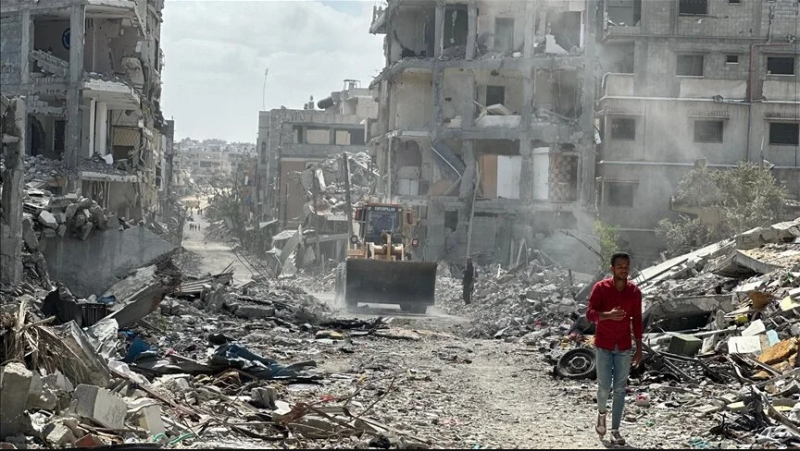Zafar Iqbal
The PML-N-led coalition government’s approach to development spending continues to reflect a long-standing pattern of prioritizing political considerations over sustainable, strategic growth. Despite hopes that the current administration would break from the tradition of inefficient resource allocation, recent data from the Planning Commission confirms that the government’s spending habits remain unchanged. As of the first eight months of the fiscal year, the funds allocated for core Public Sector Development Programme (PSDP) projects were underutilized, with spending stagnating at just 26 percent of the Rs1.1 trillion allocated – a mere Rs277 billion.
Meanwhile, in stark contrast, a significant portion of the development budget has once again been redirected toward the Sustainable Development Achievement Programme (SAP), more commonly known as the discretionary funds given to parliamentarians to spend on schemes in their respective constituencies. This program, which was intended to be a tool for addressing local development needs, has been used as a political instrument to maintain the loyalty of legislators and coalition partners, often with little to no oversight.
The PML-N-led government’s approach to development spending is not only disappointing but also highly problematic in terms of fiscal responsibility. While the core PSDP, which focuses on long-term national development projects, stagnates, the SAP remains a prime example of political expediency. In January, the allocation for SAP projects was doubled from Rs25 billion to just over Rs50 billion, and by the end of February, 72 percent of these funds had already been spent. To put this in perspective, about Rs48.3 billion of the SAP funds – a staggering 96 percent – were disbursed within a matter of weeks, a pace far outstripping the release of funds for essential national development projects.
What is most concerning is that this rapid disbursal of funds for SAP projects comes at a time when Pakistan’s fiscal health is already under extreme strain. The country is grappling with a massive revenue shortfall of Rs600 billion for the current fiscal year, which makes such a blatant disregard for fiscal discipline all the more troubling. These excessive and unregulated disbursements far exceed the finance ministry’s prescribed limits for the first three quarters of the fiscal year, raising serious questions about the government’s commitment to maintaining financial integrity.
The SAP, unlike core PSDP projects, operates with minimal oversight. While PSDP projects must undergo rigorous approval processes and are subject to scrutiny, SAP projects are often allocated without the same level of scrutiny. This lack of transparency and accountability increases the risk of corruption and inefficiency, undermining the very purpose of public spending. Instead of directing resources toward projects that will deliver long-term benefits for the entire country, the government funnels much-needed funds into politically motivated schemes that serve the interests of a select few legislators rather than the broader public.
This misallocation of resources reflects a deeper issue in Pakistan’s development trajectory. Over the past decade, the PSDP’s share of GDP has sharply declined – from 1.7 percent of GDP in 2013-14 to a mere 0.6 percent in 2024-25. This represents a troubling story of a failing development agenda, with minimal investment in infrastructure and public services that are critical for long-term economic growth. At a time when Pakistan needs to invest in large-scale projects to build a sustainable economy, the focus remains on short-term, localized initiatives that provide immediate but fleeting benefits to certain constituencies.
The failure to properly invest in the country’s long-term development has resulted in numerous incomplete projects, escalating cost overruns, and inefficient use of resources. An IMF report from last year highlighted that Pakistan requires Rs10.7 trillion to complete a backlog of unfinished projects, many of which have been left incomplete for decades. Despite these pressing needs, political considerations continue to trump the importance of long-term, nation-building investments.
Pl subscribe to the YouTube channel of republicpolicy.com for quality podcasts:
The government’s focus on short-term, politically motivated spending, particularly through SAP projects, may provide quick wins for some local constituencies, but it does little to address the broader issues of economic stagnation. This approach ultimately deprives the country of the long-term advantages that come with strategic, growth-oriented investments. Instead of fostering increased productivity, enhanced trade, and improved investment opportunities, the current system reinforces a culture of inefficiency and short-termism.
One of the most critical challenges facing Pakistan’s economy today is the deepening fiscal crisis. The country is facing a revenue shortfall of Rs600 billion, which reflects the systemic issues within the country’s fiscal management. In such a dire economic environment, every development initiative must align with the country’s broader economic goals and contribute directly to long-term growth. However, the excessive focus on localized, politically driven projects only exacerbates the country’s fiscal woes by misallocating limited resources that could otherwise be directed toward projects that enhance productivity, create jobs, and stimulate sustainable economic growth.
Furthermore, the growing reliance on foreign bailouts to sustain the economy only adds to the country’s fiscal vulnerabilities. Pakistan can no longer afford to rely on external financial assistance to prop up its economy. The current model of governance, in which political appeasement takes precedence over economic pragmatism, is unsustainable. If the government continues down this path, it will only exacerbate the country’s already fragile fiscal position and deepen its economic troubles in the long run.
The current trajectory is simply untenable. The government must recognize that short-term political benefits cannot be allowed to undermine the country’s long-term development. Resources must be carefully allocated to projects that will drive economic growth and improve the lives of ordinary Pakistanis. This means prioritizing core PSDP projects, investing in critical infrastructure, and ensuring that funds are used efficiently and transparently. Without a strategic, growth-focused development agenda, Pakistan will continue to face a bleak future of stagnation and economic decline.
Ultimately, the government must realize that a well-planned, accountable development strategy is essential to securing Pakistan’s economic future. The era of political patronage and short-termism must come to an end. Only through responsible fiscal management and a commitment to long-term, nation-building investments can Pakistan hope to achieve sustainable economic growth and improve the standard of living for all its citizens. The government must prioritize development initiatives that not only address immediate needs but also contribute to the long-term prosperity of the country.

















